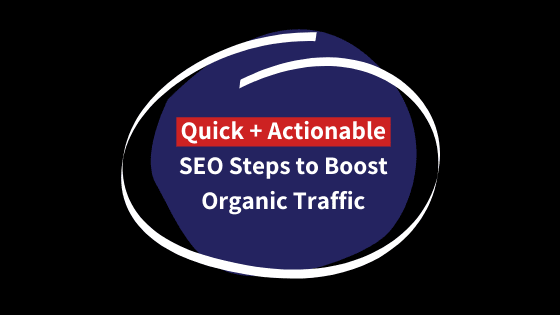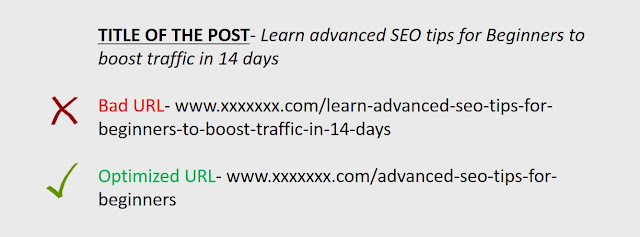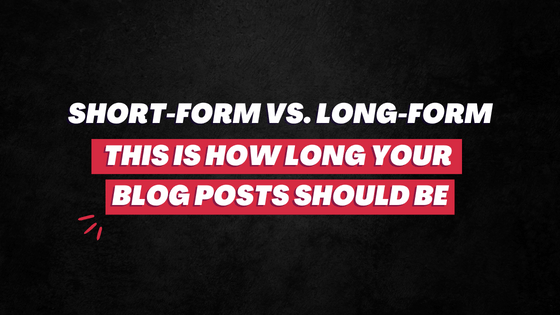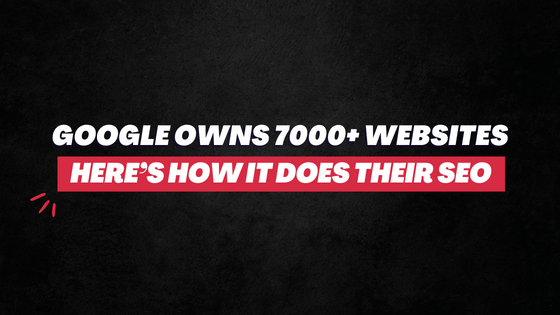Even when all the SEO tips and tricks are pretty much out there in the open, many bloggers fail at the execution part.
They know what needs to be done but fall short when it comes to taking action.
If you’re one of them, this quick post is for you.

Here are 9 minor but massively impactful SEO steps list to boost organic traffic of your website:
1. Include long tail keywords
Avoid using generic keywords. Instead, research for relevant long-tail phrases. It should be four words and more.
Google’s Keyword Planner is possibly the best long tail keywords tool.
If you’re limited in time, here’s how to do keyword research in less than 11 minutes.
2. Add internal links
Link pages and posts of your website with each other. This helps search engine crawl your website much easily.
Also, it aids easy navigation for the users/visitors.
3. Keyword-rich anchor text
The anchor texts you’re hyperlinking to your internal URLs are very important. Make sure they are keyword-rich. Also, ensure they have titles.
Here’s an example:

4. Avoid long and descriptive permalinks
Of course, your permalink aka URL of the page should make sense. But don’t be too descriptive.
Again, use keywords. Avoid consonants, prepositions, and conjunctions.

5. Make your meta description strong
Use long-tail keywords in the meta description of the post. Keep the size within 140-156 characters (with spaces).
Recommended Read: 12 Meta Description Mistakes You Are Unknowingly Making
6. Keep title size within 65 characters
Add keywords in the title. Listicle, how-to, and what format titles do better on search engines in terms of click-through-rate.
Use a few numbers or special characters to make the title interesting.

7. Update old content
Instead of writing afresh, repurpose and update the old content.
Add new information to old posts, use different keywords, change the Meta description and title, and update the date. (Note: Don’t change the URL!)
Recommended Read: How to Update Old Content to Boost SEO? (15 Actionable Steps)
8. Include (quality) outbound backlinks
Forget everything you’ve heard about link juice leakage. It doesn’t make sense for SEO in 2020.
Linking other high-quality websites is very beneficial.
Among other benefits, outbound links help search engines better understand the context of your page/content.
I’ve covered this topic separately. Please check how outbound links help SEO.
9. Optimize your images with keywords
Try to use JPEG format images. Minimize every image.
Rename the original picture (sitting in your desktop/phone) with keywords. Use keyword-rich image caption, title text, and alt text.
Recommended Read: Image Optimization in SEO: A 500-Word Guide
Here are 17 Free On-Page SEO Tools that will help you pull these steps swiftly.
For more on content marketing strategyand SEO to boost traffic, followSpell Out Marketing on Twitter! 🙂



